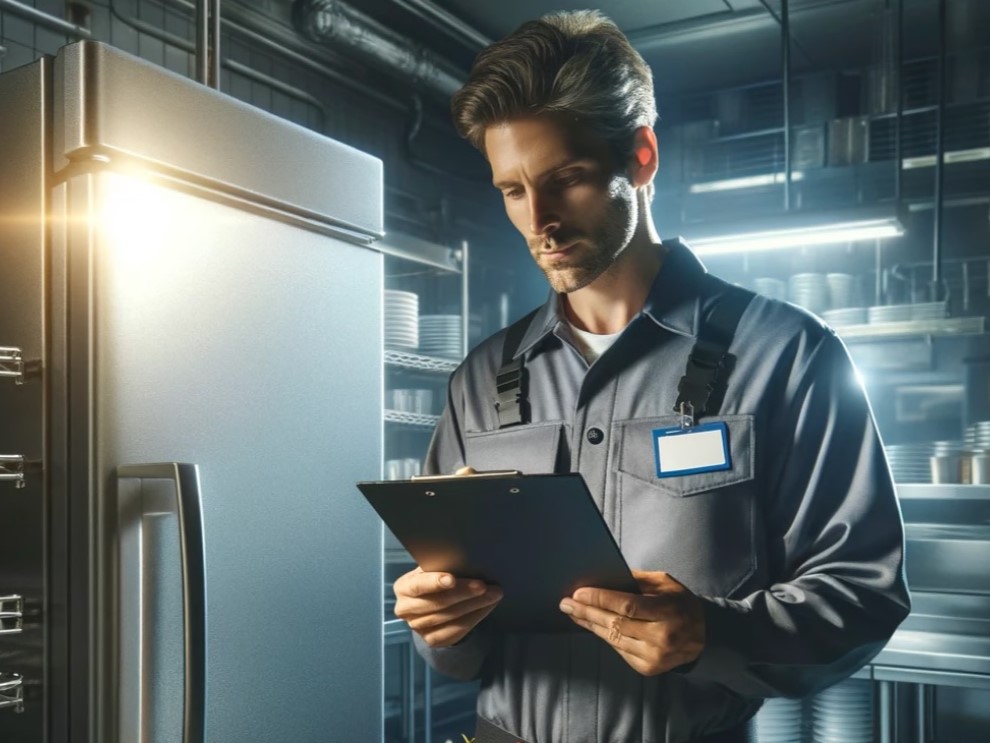The Significance of Maintaining Refrigeration in Commercial Kitchens
A commercial kitchen’s refrigeration system is its foundation. My goal as an experienced kitchen equipment engineer is to make sure these cooling units meet food safety regulations, run as long as possible, and perform properly. Frequent upkeep is essential to achieving these objectives.
Understanding Your Refrigerator System’s Anatomy
It’s essential to comprehend the main parts of your industrial refrigerator. The compressor, which drives refrigerant through the cooling cycle, is the central component of the system. The evaporator removes heat from within with the help of the thermostat, which keeps the interior at the ideal temperature for food preservation, while the condenser releases the heat that has been absorbed to chill the interior.
Putting in Place a Comprehensive Maintenance Plan
Systematic maintenance is necessary for refrigeration systems to operate at their best and last a long time. Important duties ought to consist of:
- Daily Inspections. Keep an eye out for leaks, strange noises, or changes in temperature.
- Weekly Cleaning. To improve efficiency and avoid overheating, clean the fans, evaporator, and condenser coils.
- Monthly Evaluations. Verify correct refrigerant levels, examine electrical connections, and inspect door seals.
How to Troubleshoot Typical Refrigerator Problems
Even with careful upkeep, problems can occur. This is how to deal with them:
- Temperature irregularities. Make sure the thermostat is working properly and that obstructed vents or overstocking aren’t causing it to malfunction.
- Ice Overload. In order to keep ice from blocking the cooling cycle, defrost the unit on a regular basis and make sure the auto-defrost system is working properly.
- Mechanical Upheavals. Problems such as a failing compressor may be indicated by noise or vibration; resolving these issues early on can save major harm.
Improving Refrigeration Energy Efficiently
You may save a lot of money by optimizing the energy efficiency of your refrigeration machines. Important tactics consist of:
- Strategic Placement. Make sure freezers have adequate room for airflow and keep them away from heat sources.
- Inventory control. Try not to put too much food in the refrigerator to avoid straining the system and using more electricity.
Proficient upkeep and expert assistance
Certain maintenance jobs call for specific knowledge and equipment. Professional assistance is required for these. Calibration and repairs ensure that temperature settings are regularly checked and adjusted. Trust experts to handle difficult repairs.
In summary,
For kitchens to function properly, commercial refrigeration systems must be maintained efficiently. These essential appliances last longer and function at their peak when given regular maintenance, cleaning, and problem-solving techniques.
Your refrigerated systems will be protected if you follow a planned maintenance schedule, keep an eye out for problems, and use energy-saving techniques. This will guarantee that the food you serve stays safe to eat and of the highest quality.
